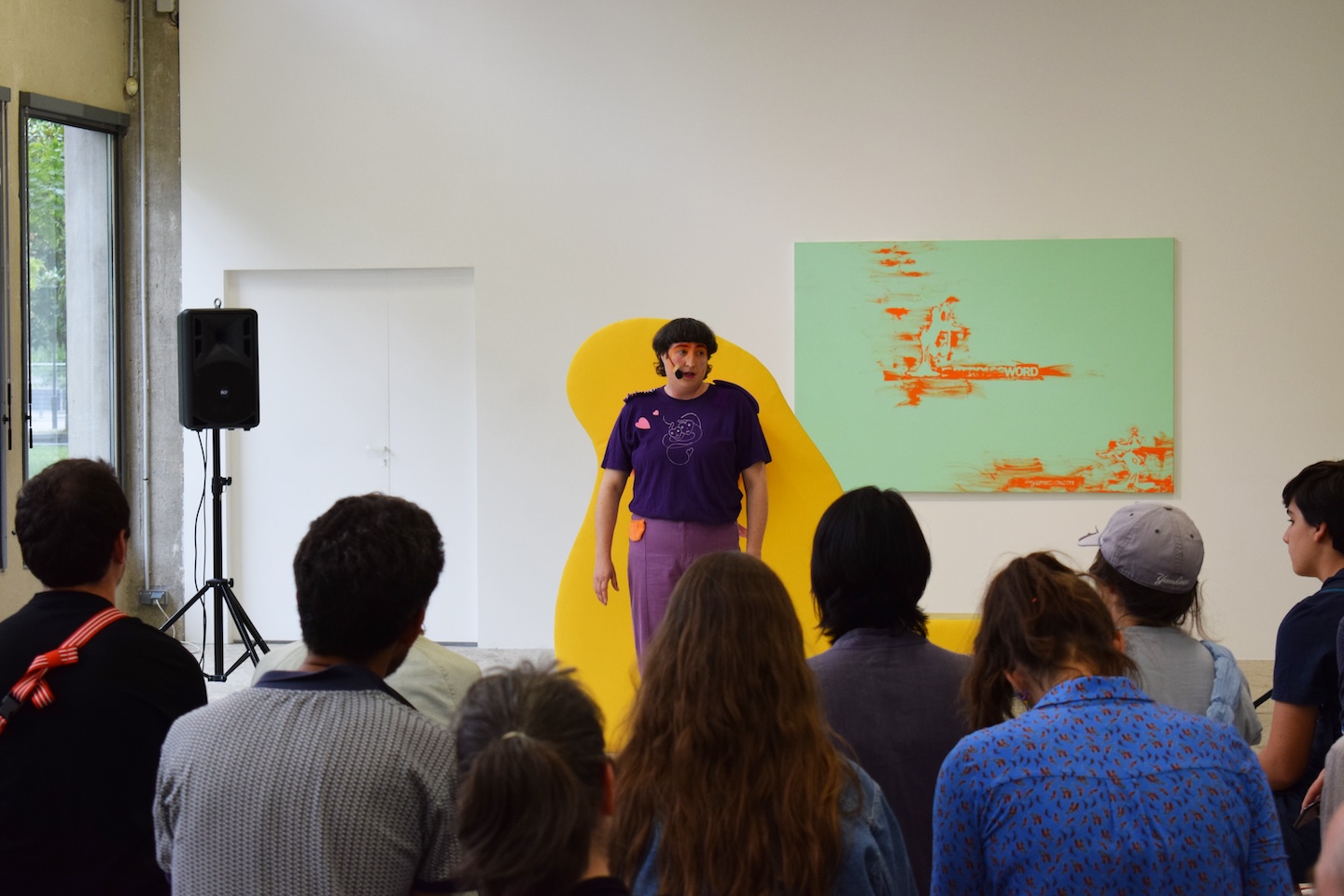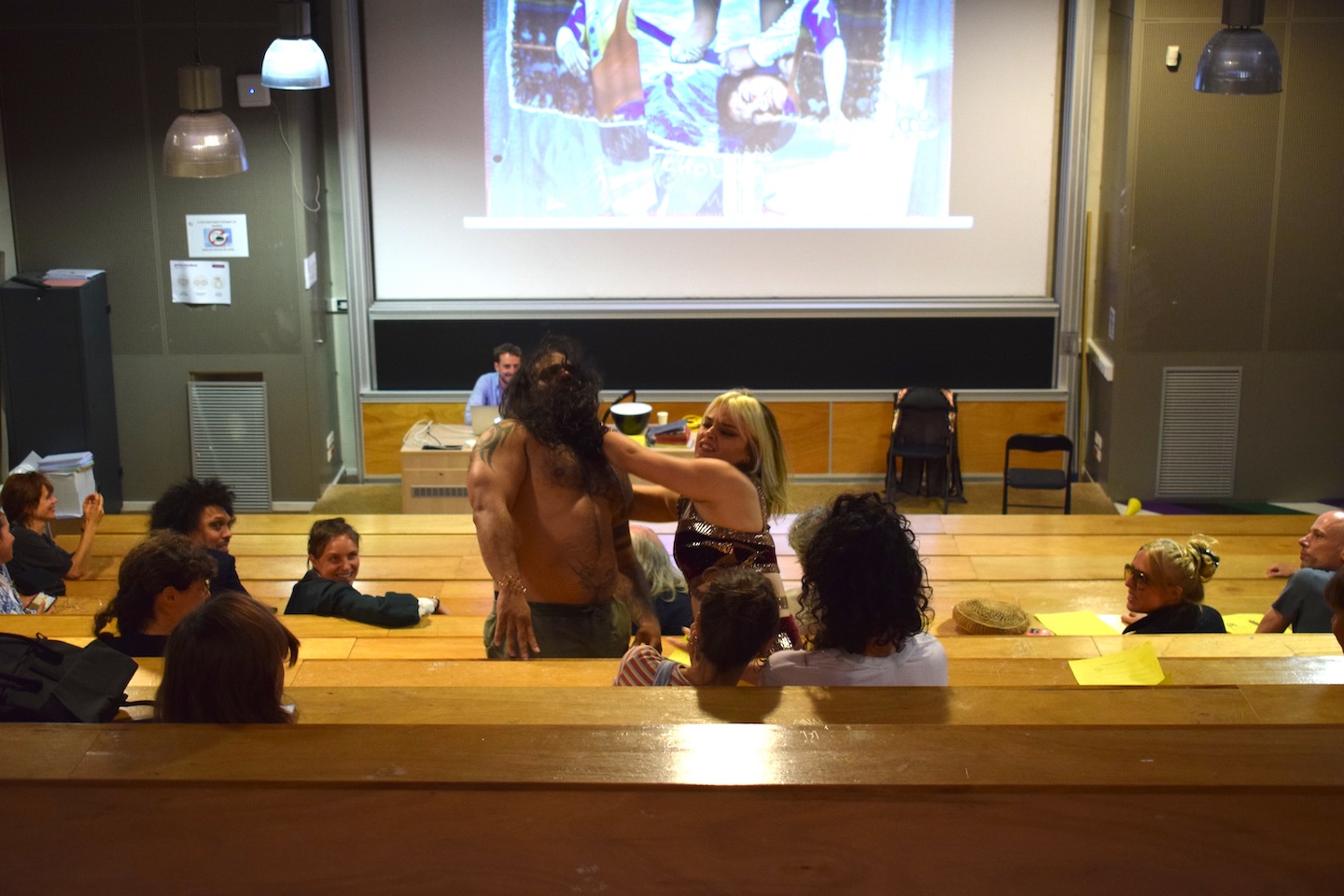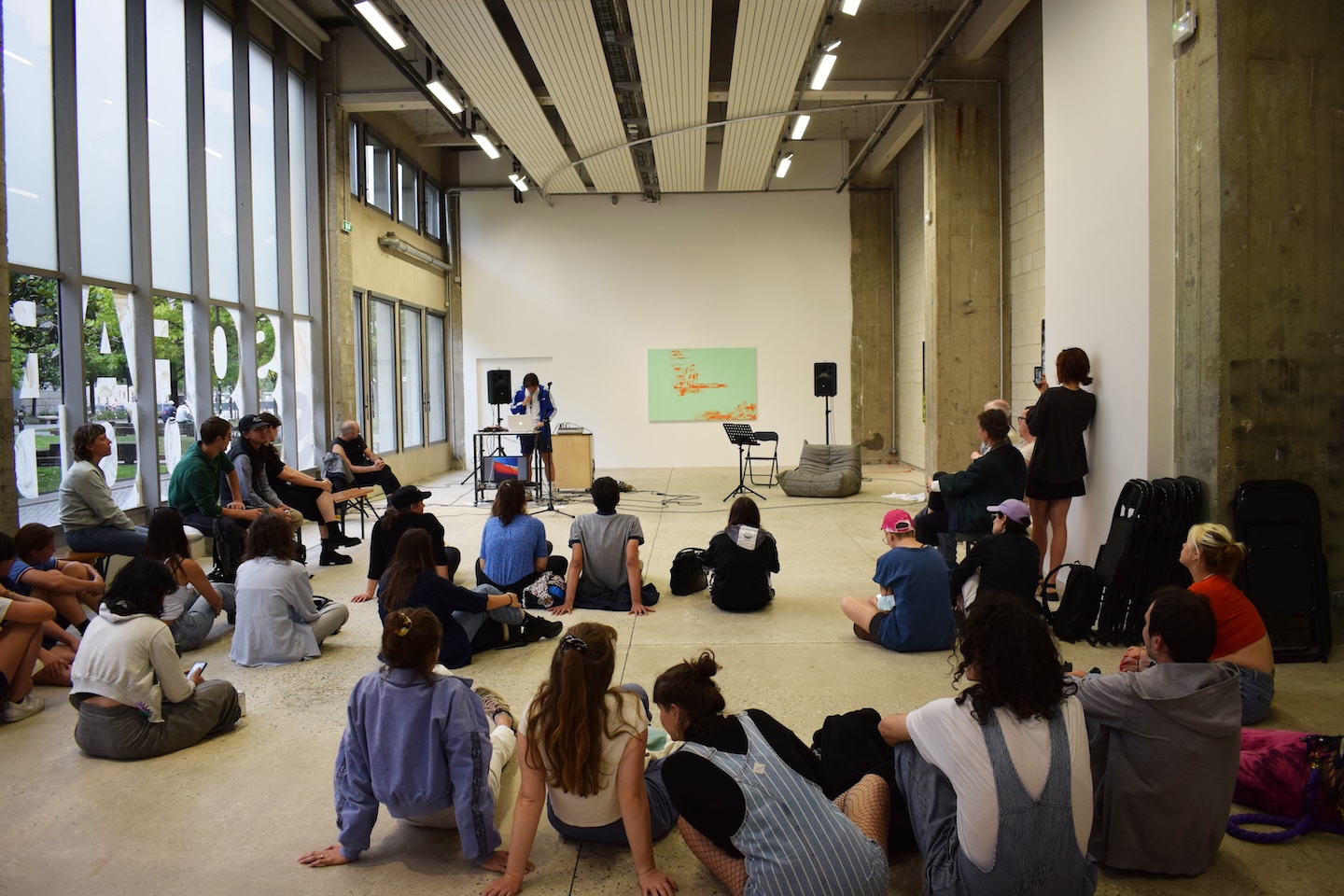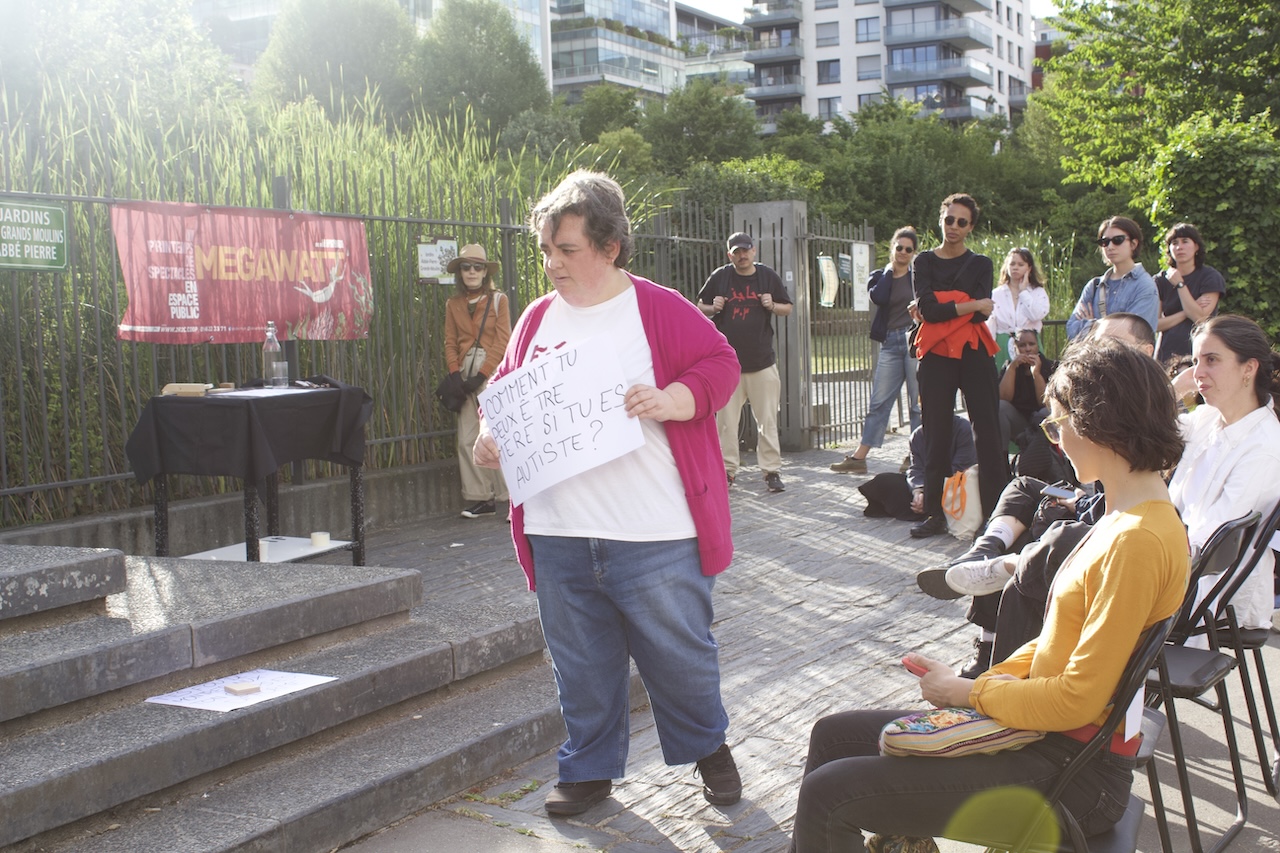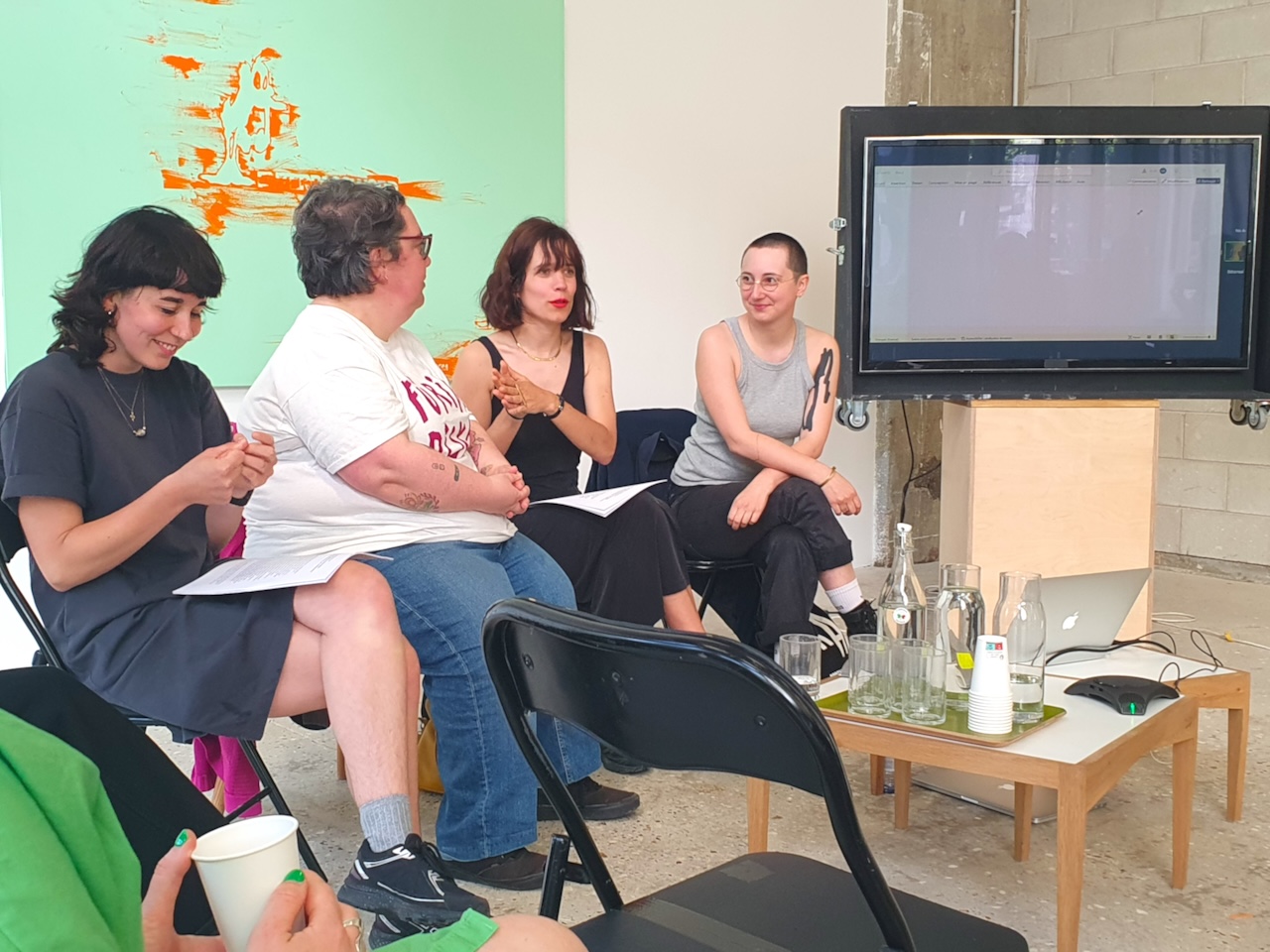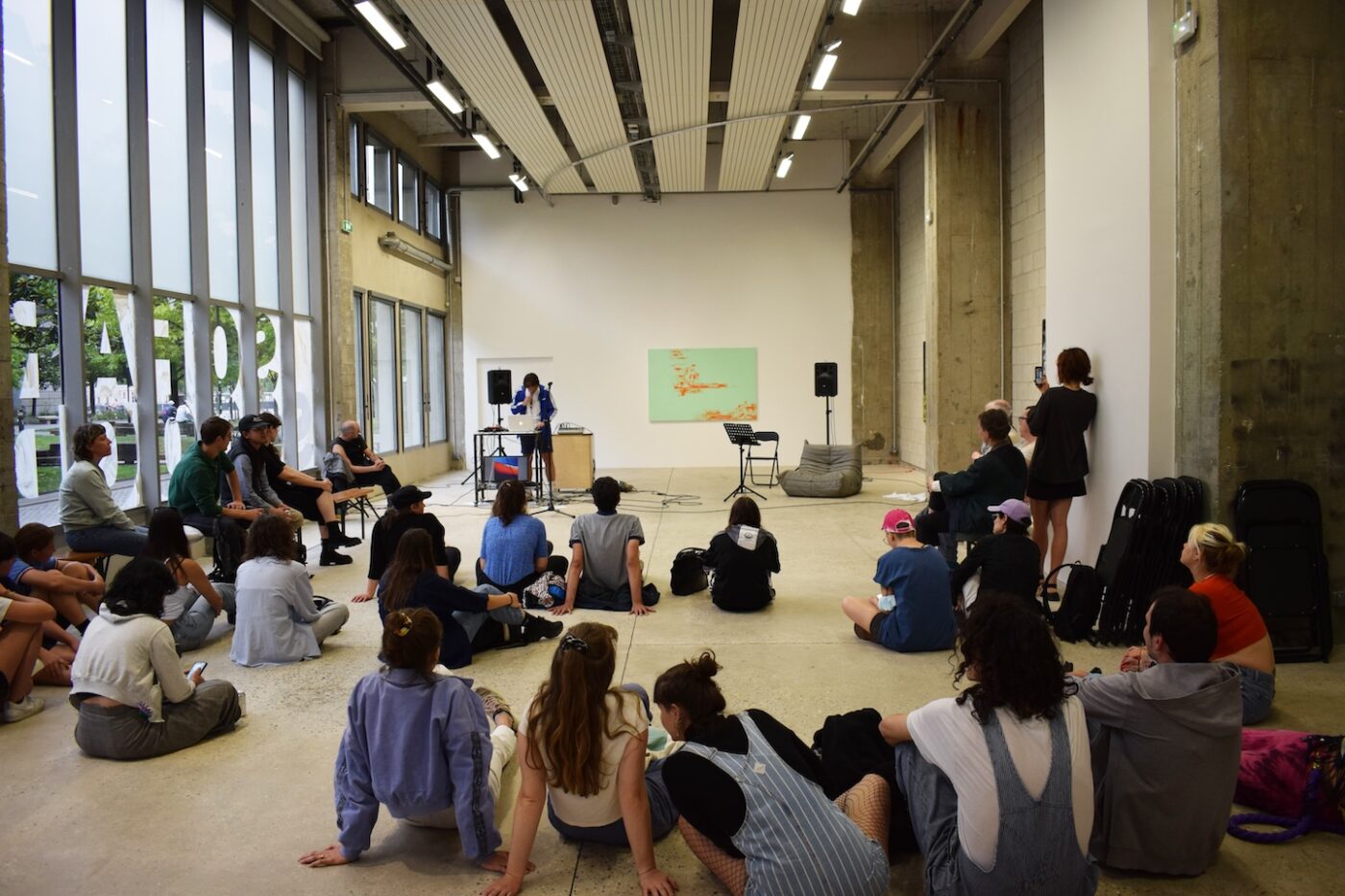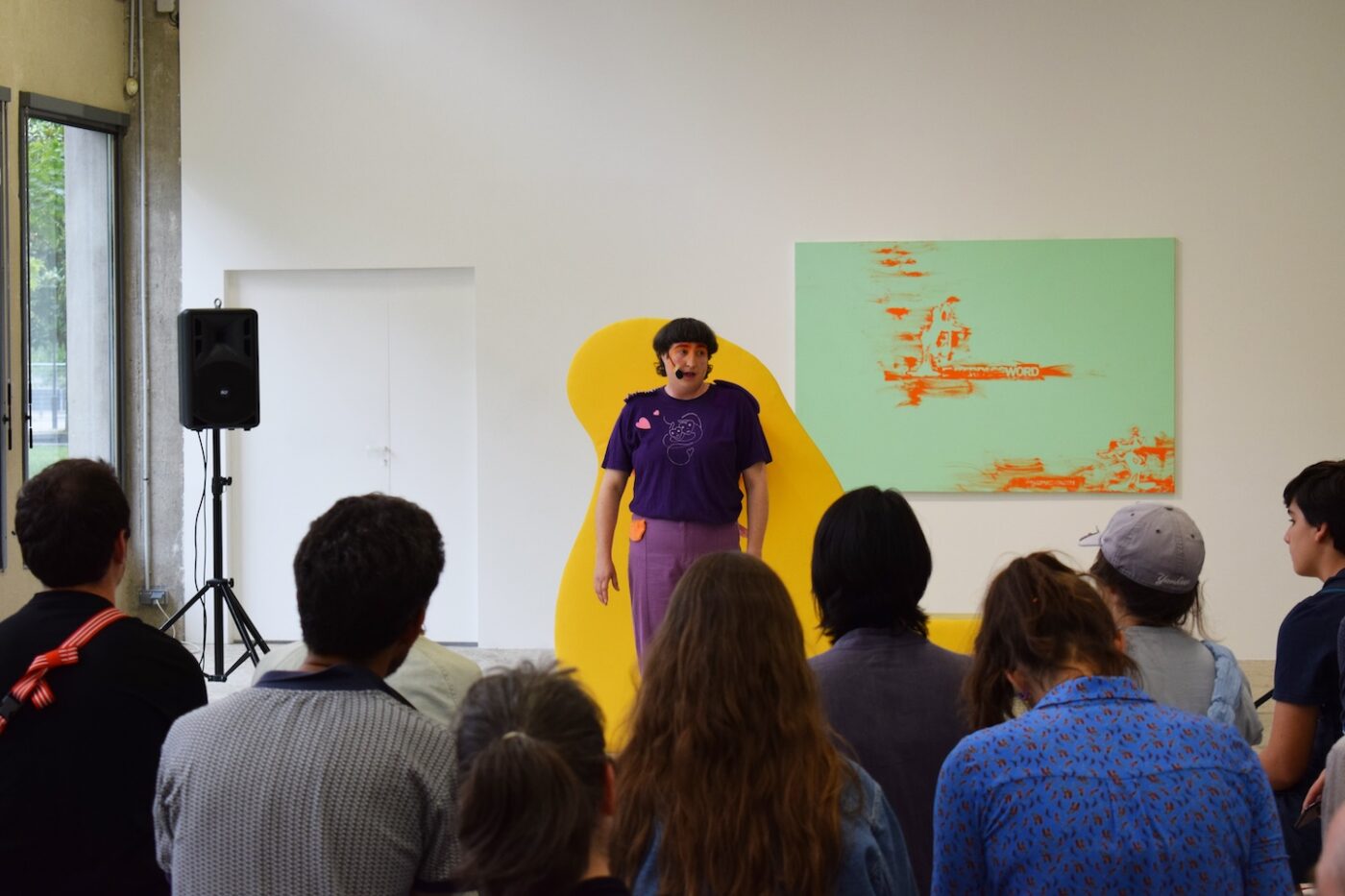
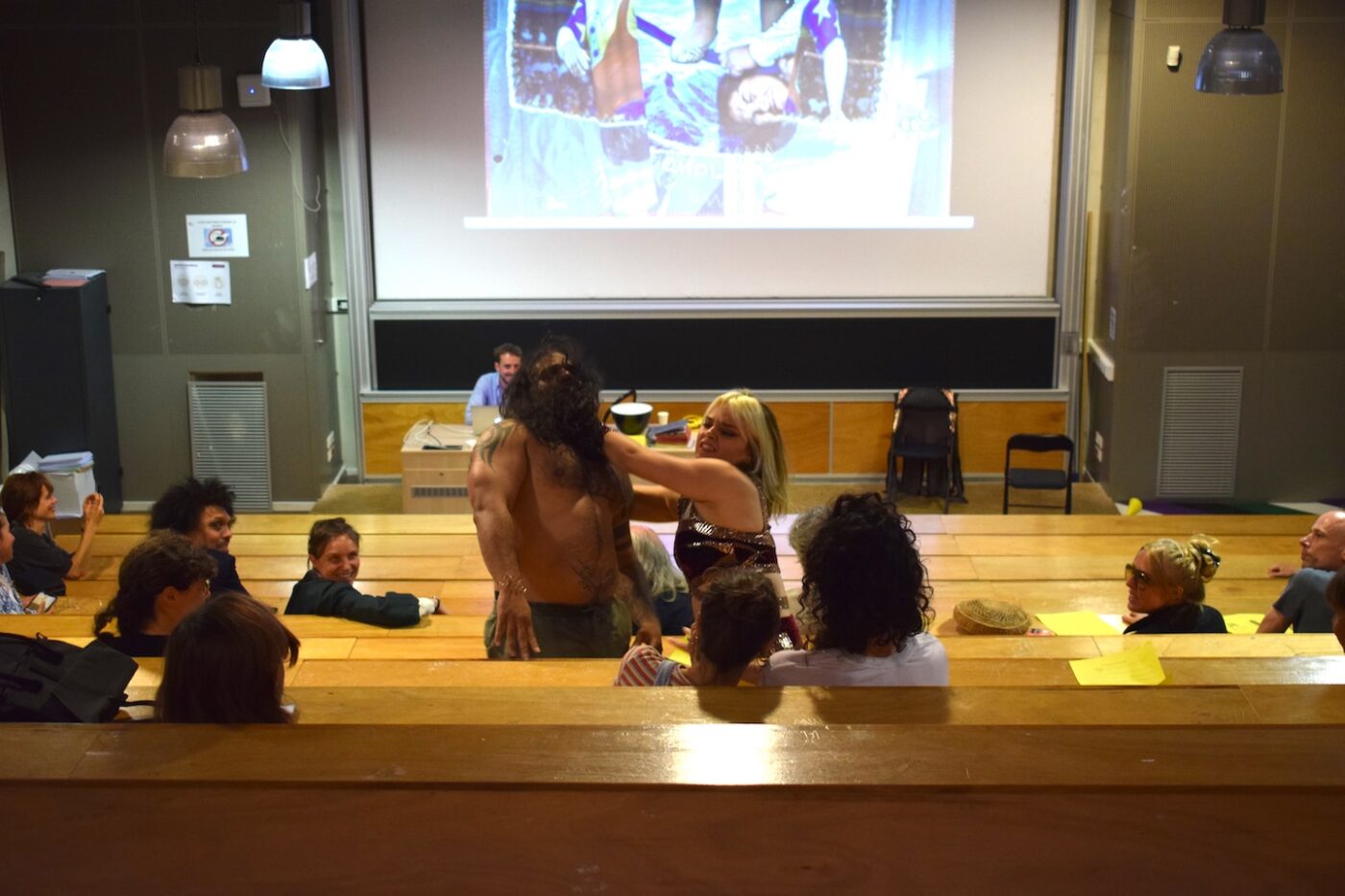
KEEPYOURSPIRITSUP!
With Clément Courgeon, Louise Siffert, Gwendal Coulon, Costa Badía, and the Ostensible collective (No Anger & Lucie Camous)
An event part of "Été culturel", a programme run by DRAC Île-de-France (Regional Committee for Cultural Affairs) - Ministry of Culture
In today’s Western societies, sport has taken such an important role in our daily lives that it has become more than a form of individual or collective leisure, or a determined regular physical activity. It now permeates our everyday, its wordage impregnating our speech, from “how are you doing, champ ?” as hellos to “it’s a marathon, not a sprint, keep going !” as words of encouragement clearly borrowed from racing. Even in the workplace, it has become synonymous with success. A company will insist on “performance”, “personal records” and “team victories”. If sport is first strictly defined as all the types of physical activity that people do to keep healthy or for enjoyment (Cambridge dictionary), it also conveys a culture of heroism, of surpassing yourself, but also others. However, it is clear that its agonistic tendencies have also invaded our lives. German economist and sociologist Max Weber already highlighted in his writings how passions for wealth had all the characteristics of a sport, as they were inhabited by the logic of combat, competition and performance. Sport has become a widespread part of existence, and is now present outside sport : ‘used as a referent, metaphor or principle of action in ever wider areas of our contemporary reality, sport has left the stadiums and gymnasiums, it has left the restricted framework of sporting practices and shows : it is a system of self-management that consists of involving the individual in the formation of his autonomy and responsibility.¹”
Idiom taken from English, “Keep your spirits up” perfectly fits into this idea of sporting incentive turned into a life mantra. Borrowed from one of Sylvie Fanchon’s paintings – whose exhibition “SOFARSOGOOD” will be used as the framework of this project which brings together artistic performance and sports -, this expression conveys both the driving force of enthusiastic momentum, for oneself but also for others, and the paradoxical injunction to do well at all costs, to be in shape only.
Keep Your Spirits Up! brings together a group of artists who all practice performance and share a desire to explore through their work the notions of effort, limitation, fatigue, but also of rest, retreat, exertion and strike, as well as the societal injunctions to stay optimistic and on course.
Each in their own way, they summon, divert and question this culture of heroism inherited from sport. And while in the contemporary visual arts, performance art generally refers to an action being performed in the presence of an audience, the word also designates a form of accomplishment, of success, in short a kind of victory… But what about artistic performances that resist and offer an alternative to performance, to the ordeal?
This is what this programme proposes to explore by inviting artists to exchange with athletes to better question wellness culture and its capitalistic spiral. What place is there for out-of-time, non-performing, inefficient bodies? How can an exhausted body that refuses to perform and resists injunctions to surpass itself also offer new possibilities for thinking about the collective, interdependence and attention to oneself and others?
Elena Lespes Muñoz
¹ Alain Ehrenberg, in Le culte de la performance, Paris Calmann-Lévy, 1991.
Clément Courgeon
Born in 1997, lives and works in Paris.
Clément Courgeon’s multidisciplinary work focuses on character creation – the buffoon, the hawker, the woodman, the Piggy-Bank prince – who each come with costumes, accessories or mobile scuptures which can welcome performances. Inspired by medieval carnival and folk traditions as well as by popular contemporary practices such as wrestling, his work, often described as “grotesque pop”, shakes up artistic conventions and social constructions, questioning our relationship to marginality and farce. His work has been shown in group exhibitions at the Beaux-arts de Paris (2020), the Fondation Pernod Ricard as part of the l’Avancée programme (2021), Askip at the Beaux-Arts de Nantes (2021), the 72nd edition of Jeune Création (2022) at the Riksidrottmuseet in Stockholm (2022), and the 100% la Villette festival (2023). In 2024, he will take part in the 17th Lyon Biennale.
Louise Siffert
Born in 1988, lives and works in Paris.
Louise Siffert trained as a scenographer before studying at the Beaux-arts de Paris. The world of work and alienation, the quest for well-being, the place of habits: her performances question and relate these current themes in a theatrical and burlesque setting. Anchoring her work in scientific and sociological reflection (queer theories, gender studies, decolonial studies, etc.), she creates characters with exaggerated personalities, overexploiting the codes of language and behaviour attributed to them. Her work can be found in the collections of the CNAP and the CAPC in Bordeaux, among others.
Gwendal Coulon
Born in 1990, lives and works in Marseille.
Gwendal Coulon’s artistic practice – be it performance, painting, text, drawing, sculpture, editorial project, installation or video – is undoubtedly a step aside, or rather a thumbing of the nose. Through shifts, references and diversions, he examines the conditions of the pictorial act and the visibility of painting, while at the same time inscribing poetic elements. His performance practice calls on similar gestures: playback, quotation, theatricalisation and humour are the tools of an investigation into the ‘concert’ event, its codes, aesthetics and context. He develops a reflection on the performative issues that link the spectator and the musician (performer). His work has been presented at the Crédac centre d’art contemporain d’Ivry-sur-Seine, by the CAC Brétigny, at La Compagnie (Marseille), at La galerie Jean Collet (Vitry-sur-Seine), at Nuit Blanche 2016 (Paris), at the CICA Museum (Gimpo, South Korea), the hTh CDN Montpellier, the Tôlerie centre d’art contemporain (Clermont-Ferrand), La Comédie/Frac Champagne Ardenne (Reims), the Axolotl gallery (Toulon) and several festivals and concert halls in France and abroad.
Costa Badía
Artist, cultural mediator and author Costa Badía (born 1981) lives and works in Madrid (Spain). A graduate in Fine Arts from the Universidad Complutense de Madrid, her work focuses on questioning beauty and behaviour stereotypes. She looks for alternative paths, and studies the coexistence of bodies and people. She is also a member of the education department at the Museo Nacional Centro de Arte Reina Sofía in Madrid, where she coordinates the accessibility section, focusing on cultural mediation and programming.
Ostensible (No Anger & Lucie Camous)
Ostensible was founded by Lucie Camous (curator, artist, researcher) and No Anger (researcher, artist, author), both of whom are directly concerned with disability. Ostensible is a research-creation structure active in the fields of disability, crip studies and contemporary art. With an approach that blends curating and research, it promotes a new approach to disability that transcends any medical prism. Ostensible was in residency at Crédac for a year in 2023-2024 and is curating an upcoming group show at CRAC, a contemporary art center in Sète in September 2024.
No Anger is a researcher and holds a PhD in political science, with their thesis Défier la sexualisation du regard. An analysis of the FEMEN and post-porn protest movements, focusing on the relationship between artistic work on the body and political protest.
Their research focuses on the effects of hegemonic imaginaries on the practices and subjectivities of social actors, and the ways in which artists and activists transform the structures of dominant imaginaries. They’re also an author, notably through their blog À mon geste défendant, where they highlight the social oppressions they experience on a daily basis in order to participate in antivalidist struggles.
No Anger is also developing an artistic practice of dance and writing, through which they exploit the possibility of artistically reinventing their disabled body, notably with Quasimodo aux miroirs (MAC-VAL, 2018). Finally, they are the winner of the Prix Utopi-e 2023.
In their artistic and curatorial practice, Lucie Camous adopts a political point of view and situates themselves at the crossroads of artistic, theoretical, and militant forms. Mechanisms of power, dynamics of resistance, and situated knowledge are the notions that question and fuel all their artistic commitments.
Their approach, rooted in intimate narratives, revolves around norms, their boundaries, and the sensitive issues involved in crossing them. Experimentation and the development of collective work practices thus structure the writing of all their projects. In 2019, they co-founded Modèle vivant·e (with Hélène Fromen and Linda DeMorrir), an experimental, transfeminist collective for drawing and dissident representations.
Lucie Camous is a member of CEA – Association française des commissaires d’exposition, REHF – Réseau d’Etudes Handi-Féministe, and currently an editor at Artagon Pantin.
Performance by Clément Courgeon
Performance by Louise Siffert
Concert by Gwendal Coulon
Performance by Costa Badía
Hosted by Susie Richard and Elena Lespes Muñoz, in collaboration with the Crédac
In person and online via Zoom
Cheerleading workshop for adults with artist Louise Siffert – as part of KEEPYOURSPIRITUP!, a programme for Eté Culturel 2024
